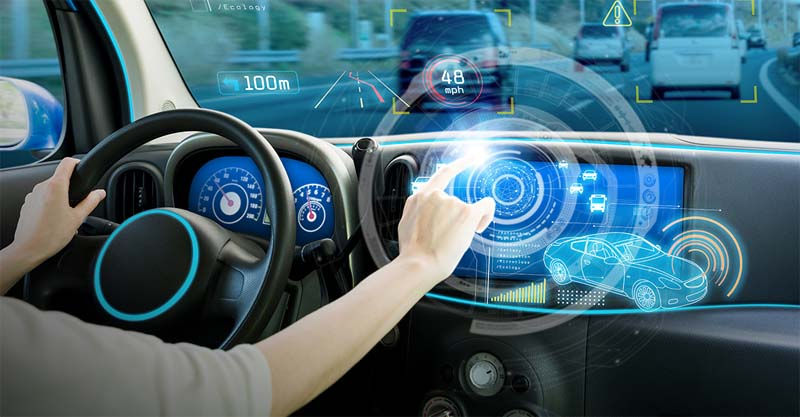How Has Electric Vehicle Become The Future Of Automobiles?
- Here’s How Sports Analyti

- Sep 16, 2019
- 4 min read
Electric vehicles will be excluded from the market dominance of combustion engines in the following decade or so. With falling prices and improving efficiency, they will become economically feasible for customers. Twenty years ago, people dreamed of quickly evolving new and interesting technologies. Artificial intelligence that surpasses the computer and even the computer capabilities of our brain, or something like an entirely clean, effective, energy-intensive vehicle. The development of a generalized AI may still be a prospect, but the clean cars are now here.
What is an electric vehicle?
An electric vehicle also known as an EV utilizes one or more electric engines or propulsion engines. Electric vehicles can be powered by electricity from off-road sources via a collector scheme or contain a battery, solar panels or an electric generator to transform fuel into electricity. EVs include road, rail, surface, and underwater vessels, electric airplanes as well as electric spacecraft, but are not limited to them.
EVs were first introduced in the mid-19th century, when electricity was one of the most important motor vehicle propulsion methods, creating a level of comfort and ease of operation that the gasoline cars of that time could not achieve. The dominant method of propulsion for motor vehicles has always been modern internal combustion engines, but electric power remains common in other kinds of cars, including trains and larger vehicles of all kinds.

Why the hype?
· Healthier air
The first and foremost reason for inclining towards electric vehicles is associated with the state of air we breathe. Because electric cars have no tailpipe emissions, this is currently one of the most environmentally friendly means of transportation. Only significantly less polluted air is seen when there are enough electric cars along the road. At some point in our life, we all have learned about the ozone layer and how the world around us is affected. This small move will decrease global emissions of greenhouse gases and reduce our carbon footprint. We certainly can slow down the onset if we can't prevent global warming and the electric vehicles are nothing but a nice beginning for a better future.
· More economical
Electric cars maybe a little more expensive than fuel cars, but the price of these vehicles per km is less than 1/3rd. Moreover, electric vehicles could be far cheaper to travel with the rising price of petrol. The difference in the price of fuel vehicles and electric vehicles is rising. An electric vehicle costs are considerably less than a fuel-powered vehicle in almost all respects. Electric vehicles provide numerous benefits: it is not necessary to buy fuel, no oil modification, no smog tests and less moving parts for hemorrhage and wear. Many electric car owners have no repair or service charges for many years.
· Reduced waiting time at the petrol pump
Without fuel or oil to change, you just plug in at home, at work or on the road to refuel. Electric cars can connect the same as your television to your home power supply, i.e., 13amp. Trials showed that 85 percent of EV users plug into the home or work overnight. It can even be charged on the go with a quick charger. Charging in motion is just as easy with new charging stations for electric cars. The power into your batteries is increasingly generated from renewable sources as a bonus for charging.
Click Here For Free Insights: https://www.kbvresearch.com/news/electric-vehicle-market/
3 Electric Vehicle trends shining bright in the automobiles sector
1. Automakers
Automotive companies invest heavily in electric vehicles as they recognize the electric vehicles are disrupting the industry. Significant inner changes will be made as teams struggle to achieve their share of budgets in R&D and current heavyweights will refuse to leave the electric divisions gracefully. Many new partnerships will be established in the supply chain. New technologies will be focused on as the car turns into a real wheel computer.
2. End users
Electric vehicles will witness a turning point from incentives and subsidies. The rapidly increasing network of charging stations and supercharging systems will make it simpler for the end-user to adopt electric vehicles. Higher driving skills with packaged innovative features will make it hard for clients to withstand the experience of owning an electric car. Once you're driving an electric vehicle, it's hard to go back.
3. Government regulations
The Electric Vehicles Initiative (EVI), with the adoption of electric vehicles reducing the carbon footprint, will be a concern for governments. In order to encourage and make electric vehicles accessible, governments play a main role in solving subsidy-related problems. Governments must consider offering unique privileges, such as removing expressway tolls and prioritizing parking spaces, to promote the adoption of electric vehicles.
The future of electric vehicles
The electric vehicles market is booming and shows great potential as a replacement to the mainstream vehicles. An additional 8GW of energy production has been projected to meet the potentially increasing demand for electricity. Significant investments in upgrades will be required, including but not restricted to innovative power load balancing. However, that's not all. To achieve the mass replacement of combustion engines for low-emission solutions, an elevated percentage of renewables and other non‐carbon fuel options will be used for electricity generation. Every householder of electric vehicles has an electrical generation and storage unit. Ideally, these storage devices have sufficient charge for a few days to power the average home. The global electric vehicles market is expected to skyrocket at a growth rate of 24.7% CAGR in the near future.






Comments